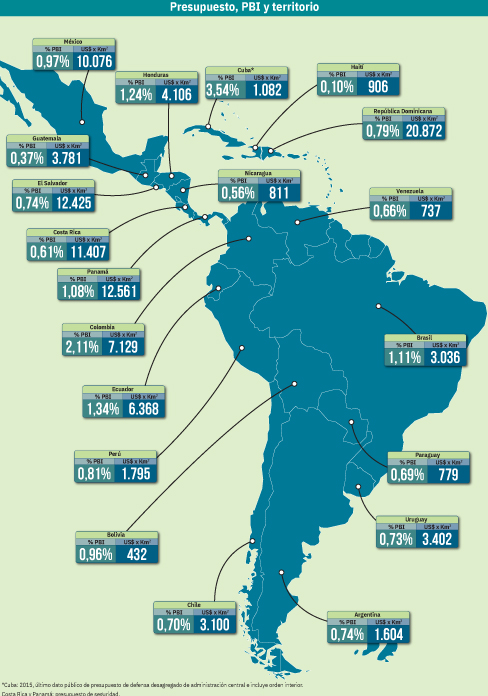Emergency Summit Regarding Antarctic Meltdown

Image by Annie Spratt.
“Runaway ice loss causing rapid and catastrophic sea level rise is possible within our lifetimes.” (Source: Our Science, Your Future: Next Generation of Antarctic Scientists Call for Collaborative Action, Australian Antarctic Research Conference, November 22, 2024)
Hundreds of scientists gathered in Australia for an “emergency summit” within the auspices of the inaugural Australian Antarctic Research Conference d/d November 2024. This gathering of 450 mostly “early-career” polar scientists flexed scientific muscles to alert the world to the what’s happening to our planet, taking off the gloves and coming out swinging. They claim we’re got a bigger problem than generally realized: “Efforts to slow down climate change through coordinated global action are paramount to protect the future of Australia, Antarctica, and our planet,” Ibid.
“The experts’ conclusion, published as a press statement, is a somber one: if we don’t act, and quickly, the melting of Antarctica ice could cause catastrophic sea levels rise around the globe.” (Source: Emergency Meeting Reveals the Alarming Extent of Antarctica’s Ice Loss, Earth.com, Nov. 24, 2024)
According to the polar scientists: “The services of the Southern Ocean and Antarctica — oceanic carbon sink and planetary air-conditioner — have been taken for granted. Global warming-induced shifts observed in the region are immense. Recent research has shown record-low sea ice, extreme heatwaves exceeding 40°C (72°F) above average temperatures, and increased instability around key ice shelves. Shifting ecosystems on land and at sea underscore this sensitive region’s rapid and unprecedented transformations. Runaway ice loss causing rapid and catastrophic sea-level rise is possible within our lifetimes. Whether such irreversible tipping points have already passed is unknown.” (Our Science, Your Future)
The scientists are calling for society to set immediate targets to “bend the carbon curve.” Failure to do so will commit generations to unpredictable, unstoppable sea level rise, likely beyond current expectations. Drastic action is necessary before it’s too late, calling for immediate reduction of emissions, CO2.
Coastline Megacities at Risk
However, reducing emissions is likely impossible unless and until major governmental authorities force the issue. Voluntary commitments to cut GHG (greenhouse gases) have not worked for over 30 years. Pledges by more than 150 nations to voluntarily cut emissions at the celebrated Paris 2015 UN climate meeting have flopped like a house of cards.
Meanwhile, residents of vulnerable coastal cities may need to consider forcing the issue by forming Citizen Action Flood Prevention Committees to pressure local, state, and federal officials to take immediate measures to protect valuable real estate that’s subject to turning worthless. These committees could be supported by petitions signed by residents, demanding political action to take mitigation measures to protect their coastlines. For example, would nearly 100% of the residents of Miami Beach sign, maybe. And, how about residents of Jersey City? Maybe yes. And onward….
According to Earth.org, coastal megacities are at serious risk, e.g., Bangkok, Amsterdam, Ho Chi Minh City, Cardiff (UK), New Orleans, Manila, London, Shenzhen, Hamburg, and Dubai as well as megacities Miami and New York City. Many Florida and East Coast cities are high risk, e.g., Ft. Lauderdale, Norfolk, Hampton, Charleston, Cambridge, Jersey City, Chesapeake, Boston, Tampa, Palm Beach. It’s a long list.
Unless and until citizen committees authorized by locals with demands en masse are presented to and accepted by local, state, and national policymakers and acted upon, according to a highly regarded analysis by The Universal Ecological Fund, working with climate scientists from the Intergovernmental Panel on Climate Change, The Truth Behind the Climate Pledges: “An environmental and economic disaster from human-induced climate change is on the horizon. An analysis of current commitments to reduce emissions between 2020 and 2030 shows that almost 75 percent of the climate pledges are partially or totally insufficient to contribute to reducing GHG emissions by 50 percent by 2030, and some of these pledges are unlikely to be achieved.”
Moreover, the situation at hand is double trouble as the oil and gas industry has already committed to rapid expansion of fossil fuels at the same time as major corporations are turning up their noses at prior commitments. Climate change has lost its cachet at the worst possible moment: “In February 2024, three major investment companies stepped back from efforts to limit climate-damaging emissions. JPMorgan Chase’s and State Street’s investment arms have both quit a global investor alliance encouraging companies to avoid emissions, and BlackRock has largely limited its involvement. These companies aren’t the only ones backing out on climate agreements. In 2023, Amazon dropped an effort to zero out emissions of half its shipments by 2030, BP scaled back on its plan to reduce emissions by 35 percent by the end of 2030 and Shell Oil dropped an initiative to build a pipeline of carbon credits and other carbon-absorbing projects. Hundreds of companies across the world are backtracking on commitments toward green policies, despite growing concerns that the planet is reaching a crisis point.” (Source: Why Are Companies Reneging On Emissions Reduction? Earth Talk, April 11, 2024)
Recent headlines tell the story: Top Companies Exaggerating Their progress (BBC) When Companies Reverse Their Climate Commitments (Yale Insights) Net Zero Promises from Major Corporations Fall Short (NBC News) Oil Companies Are Still Committed to Burn the Planet Down (Jacobin). A comprehensive list of reneging corporate interests is astonishing.
Making matters more challenging yet, the polar scientists are severely compromised by politics, to wit: “Far-right parties opposing climate action are gaining significant momentum worldwide, especially in Western nations including Argentina, Italy, France, Germany, the Netherlands, and the UK. It is particularly noteworthy that despite their differing domestic agendas, these parties are unified in their resistance to climate initiatives.” (Source: The Betrayal: Why the Far Right Abandoned Action on Climate Change, Oxford Political Review, 18 June 2024)
“The contemporary far-right’s turn against the environment is a major break from the past. During the 1980s, traditional conservatives, like Ronald Reagan and Margaret Thatcher, showed an interest in addressing environmental issues,” Ibid.
The World at a Crossroads
Which will it be? The choice is crystal clear. There are two and only two: (1) Fight dangerous climate change by stopping fossil fuel CO2 emissions now, or (2) Bale-out flooded megacities down the road?
Based upon data from the Intergovernmental Panel on Climate Change 6th Assessment and multiple lines of evidence, current and future emissions will determine the amount of additional sea level rise: the greater the emissions, the greater the warming, and the greater the likelihood of higher sea levels. Based upon emissions to date, two feet of sea level rise will likely occur along the U.S. coastline between 2020 and 2100. That’s already baked into the cake. Failing to curb future emissions could add an additional 1.5 to 5 feet of rise, for a total of 3.5 to 7 feet. (Source: U.S. Sea Level Change, USGS Technical Report, 2022)
The USGS 2022 Technical Report, as outlined in the preceding paragraph, is now choking on the dust of two-years of the hottest 24 months on record, smashing all records with 2023 +1.48C hotter and January-September 2024 +1.54C above the pre-industrial average. A USGS technical update today would almost certainly add to sea level rise projections. Thus, prompting an obvious concern: Is global warming already getting out of hand?
Which way will society turn: (1) stop fossil fuel emissions now, or (2) bale-out flooded megacities later? And would that even be possible?
450 polar scientists are not scaremongers. They’re professionals that are deadly serious. We’ve got a much bigger problem than generally realized.
